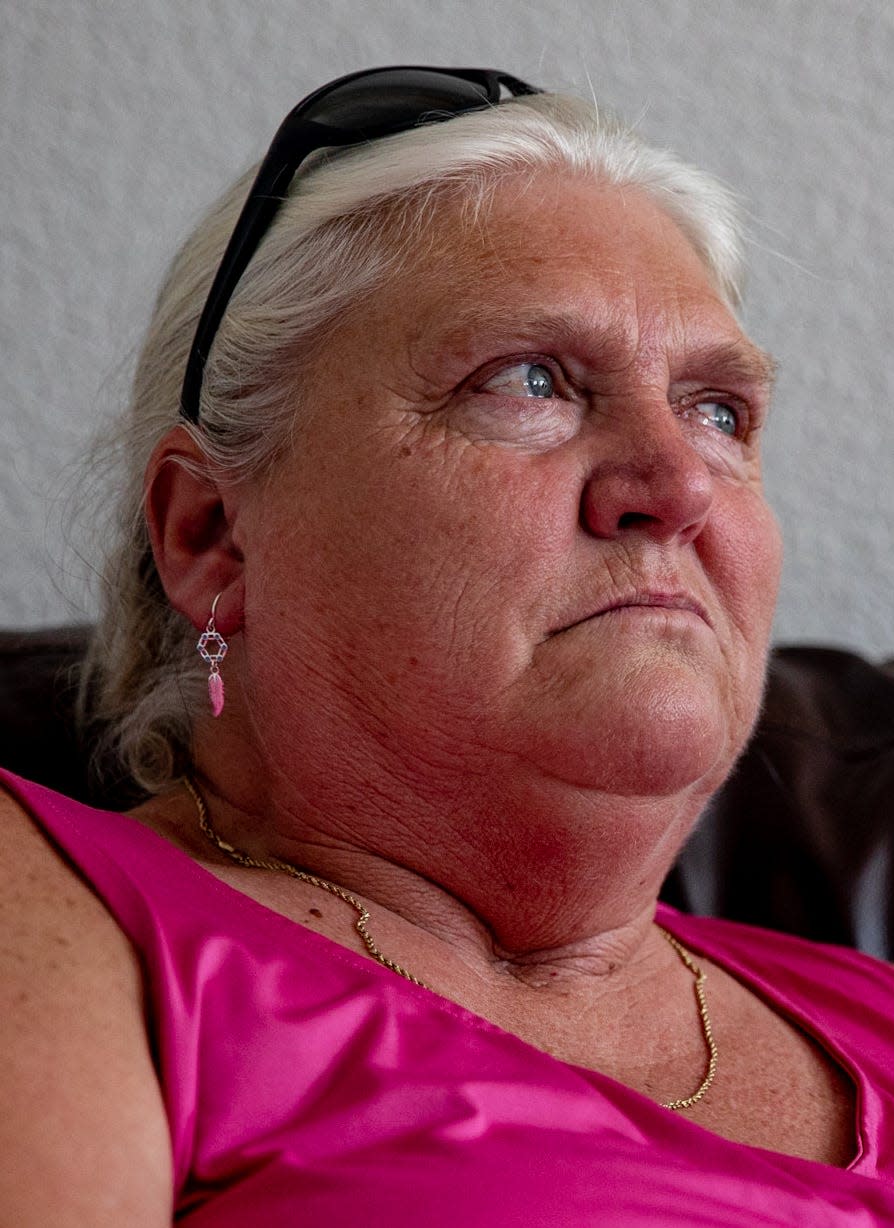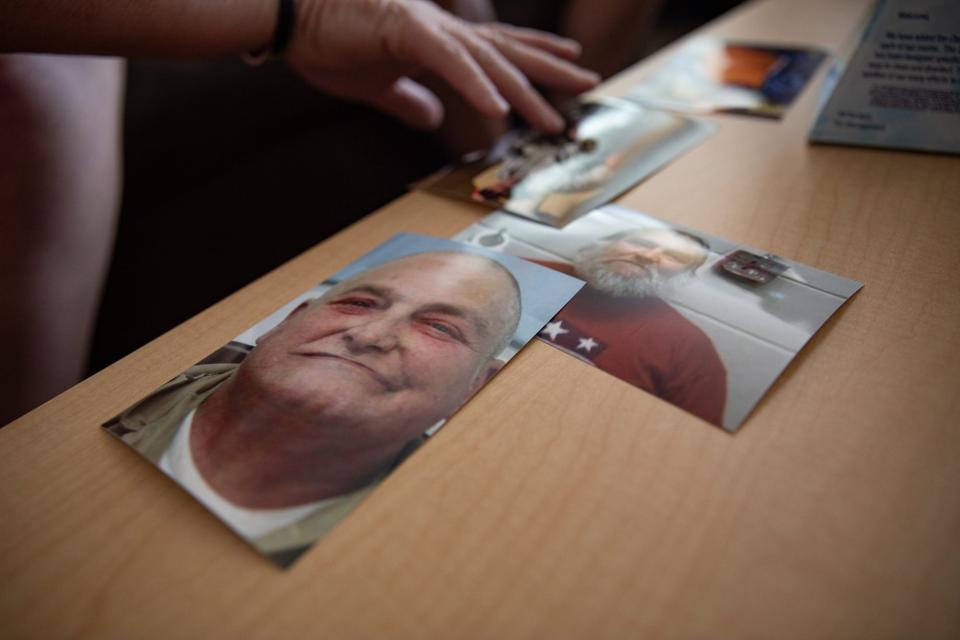After Ricky Gibson's death in prison, his sister confronts the judge who sentenced him
Nineteen days after her brother died in an Alabama prison, Diane Cook made her way to the Marshall County courthouse.
She wanted to confront Christopher Abel, the judge who on May 26 sentenced her brother to five years in prison because of a probation violation, despite his poor health and nonviolent offender status.
Cook had warned Abel that day that sending him to prison would kill him. Ricky Gibson died in Kilby Correctional Facility on July 2, 17 days after he arrived.
Before she entered the courtroom, she met with Mark Hopper, her attorney. He warned her not to get too heated or else she could be arrested for contempt of court.

Cook paused.
'I can't breathe': Inmate dies in Montgomery County prison, sister believes oxygen denied
Previous coverage: Will rising temperatures lead to a rise in violence inside Alabama's uncooled prisons?
“How long could I be held in jail for that?” she asked.
“Five days for each charge.”
Cook thought for a few seconds.
“Five days is not that bad. I’ve done longer.”
As she stood outside the courthouse, she talked with folks who knew Ricky Gibson and had shown up for the 9 a.m. drug court session. They recounted stories of Ricky — how he brought those chewy orange slice candies to the weekly meeting; how he told a joke in court that made everyone, even the judge, laugh; how he brought nicotine patches for one of the women in the program who was trying to quit smoking.
“I loved him to death,” one of them said.
Cook sat through the over two-hour court session before raising her hand to approach Judge Christopher Abel. She held two photos in her hand.
One showed Gibson from the day in May when Abel sentenced him. He looked slightly ill. The other was Ricky’s intake photo at Kilby. In it, his eyes are swollen and red, and his face is pale and puffy.
She asked why Abel wouldn’t let Gibson go on house arrest. Abel said he didn’t want to send her brother to prison, but he felt his hands were tied. Ricky had committed a major infraction, and the way he saw it, his only options were community work release or prison, and Ricky couldn’t work.

“I don’t want to send anybody to prison,” Abel said. “I don’t remember anyone coming back from DOC better.”
She asked if he understood how sick Gibson was.
In other news: Two more lawsuits filed to stop Alabama prison construction
Alabama's prison systems: In 1976, the feds took over Alabama's prison system. And Alabama's prisons improved.
“I know he had health problems. I may not have known how serious they were,” but it’s not his responsibility to administer medical care in prison, he said.
“Did I want your brother to die? No. Do I have to treat him the same as everyone else? Yes.”
When she left the courthouse, Cook said there was more she wanted to tell him but didn’t out of fear of being arrested.
“I wanted to say he had a hand in killing in Ricky,” Cook said.
Evan Mealins is the justice reporter for the Montgomery Advertiser. Contact him at emealins@gannett.com or follow him on Twitter @EvanMealins.
Your subscription makes our journalism possible. Subscribe today.
This article originally appeared on Montgomery Advertiser: After Montgomery County prison inmate death, sister confronts judge

